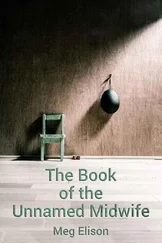“We’re nowhere.”
“Nowhere?”
“It hasn’t been an active case for a long time.”
“Why did I establish a trust, then?” he cried. “I made a specific provision in the trust for your firm to be paid so that the case would continue.”
“It’s not a matter of money, Tim. We got the money.”
“So what’s the problem?”
“I refunded the payments.”
Tim leaned back in the booth and looked at Fritz confidently for the first time. “What the hell for?”
“We can’t find him,” said Fritz, leaning forward over his untouched coffee. “We’ve looked, Tim. We’ve looked everywhere. We can’t find him.”
“So you just quit?”
“It’s a cold case, man. I’m sorry. It’s been cold for years.”
“You can’t find one guy, big firm like yours and one guy eludes you, when R.H. is wasting away in his cell.”
“R.H. is dead, Tim. R.H. killed himself.”
“How hard can it be to find one guy?” he asked. “You found me, didn’t you?”
Tim sank down in the booth. His view now included the ill-swept tiled floor and the windowsill scattered with dead flies. Fritz looked at him intently, his elbows on the table, but said nothing.
“So if there’s no news for me,” said Tim, “why did you stop by?”
Fritz turned briefly to look out at the uneven slope of the parking lot, its potholes and crumbling blacktop. He turned back. Tim’s obdurate eyes remained under the table.
“She was worried,” he said. “She asked me to find you. She wanted to make sure you were okay.”
“She? Who’s she?”
Fritz pointed out the window.
“What?” said Tim. “What am I looking at?” He turned back to Fritz with an expression of outrage. “Oh, no, that’s unacceptable,” he said. “That’s totally unacceptable.”
“She’s your wife,” said Fritz.
“I’m working right now, goddamn it. I have work to do.”
“She just wants to know you’re okay,” he said.
She talked briefly to Fritz before going in. Tim kept his eyes focused outside the window as she entered the restaurant and approached him.
She came up close to him and reached out and touched his cheek. He didn’t want her to, but he did not move. He tried not to think of how he must look to her. He looked quickly into her eyes but then turned away. He did not want to read the emotion on her face. He did not want to see the particulars of her face again or how they came together to make her beauty. He did not want to know how she had or had not aged or what she wore, if it was something old or something he would not recognize. He did not want to be so close to her that he could smell her perfume. It was that faint but unmistakable scent and her pale eyes and her freckles that announced her inimitable self and called him back to everything he loved about the world.
“You haven’t been taking care of yourself,” she said. She glanced at the table for a plate that wasn’t there. “When did you last eat something?” she asked. “You’re too thin.” She smoothed down the hair on the back of his head. “Please talk to me,” she said. She stayed standing over him as if they had merely just finished eating and while he was collecting the change she was casually showing him affection in the instant before he stood, in the moment before they got back in the car together and returned home. “You need a wash,” she said. With patience she picked a nettle from his oily hair, a nettle from a tree he must have brushed past. “Where you’ve been,” she said, shaking her head. Her eyes filled with tears. She finally let her hand fall. “I’m going to sit down,” she said. She slid into the booth, opposite him. She wore a light pink blouse of crepe de chine with three-quarter sleeves. The color highlighted the fairness of her skin, that reddish tint that maintained without effort the youthfulness of her face. Her laugh lines and the crow’s-feet raying out at the corners of her eyes were an incongruity on that girlish face, like some unfair miscalculation. Her entire presence there was an incongruity. It brightened the dismal fluorescent brutality that such chain places wore like trademarks — unmistakable lighting from the highway, the national color of insomnia and transience. The hard booths were an insufferable yellow.
“Are you not going to talk to me?” she asked.
She reached out for him with both hands. He did not want her to touch his disfigured hands nor did he want to feel her touch, but again he didn’t move. He managed only to keep his eyes averted. His apparent indifference might have seemed to come from someone hardened past the point of having his heart moved. With her arms outstretched and her hands covering one of his, her silence grew out into the kind of delicate pause that is called for when the other person is in deep mourning and minor gestures are meant to offer some portion of an unattainable solace.
She looked at his hand in hers. “Your poor fingers,” she said.
He heard the quiver in her voice. He pulled away. He placed his hands together under the table, away. Soon he felt the phantom sensation of her hands. The advantages the other had over him, advantages that made hunger gnawing and pain vigilant and a touch from a woman bound up in memories of love more unbearable than all the other ills put together, were insurmountable. The senses were unvanquishable. He despised her for reminding him. There could be no stronger reminder. Hungry? Fuck you, two days without food. Hurting? Too bad, it’s your funeral. But Jane. Jane was different. He resided behind armed checkpoints and coils of razor wire and slabs of blastproof concrete, but her touch was a convoy.
“Becka misses you.”
“Please don’t talk about her,” he said.
She was silent. “I miss you,” she said. “Your apartment misses you. Tell me you don’t miss it. Tell me you don’t miss the muffins I make you. You try to find a muffin like that in here. Try to find one fifty miles in any direction. I don’t know how we’ll do it, Tim, but we’ll do it. And you’ll be there when the apartment fills up with the smell of muffins. Haven’t we done it in the past? We’ll do it better this time. We’ve learned some things. Tell me you don’t miss it.”
The ghost smell, triggered by his memory of her sweet baking, made his mouth water and brought on such a strong physical yearning that his body reasserted itself over his mind completely and he had to admit finally that he was not in the city and not at the office. He was in the front booth of a Waffle House on the unnamed borderland between two stagnating townships.
“Tell me you don’t miss sitting in front of me in the bath getting your hair washed,” she said. “Tell me that isn’t a better consolation for your sickness than this.”
“I have work to do,” he said.
“Tell me it’s not a better consolation,” she said. “Tell me you don’t miss my fingers in your hair. Let me show you.”
“No.”
“Let me remind you.”
“No.”
“Tell me,” she said, standing and moving with a fluid grace from her side of the booth to his, and lowering her voice so that it entered only his ear, “tell me you don’t miss your tongue in my pussy. Tell me you can make any sense of this world without that, without your lips on my pussy, making me come.”
Her words shocked him. They started an erection he didn’t want. He moved closer to the window to put distance between them.
“Tell me one of us should suffer without the other’s help. Tell me you’d let me wander off on my own, forget to eat, forget to bathe, forget the promises we made. I know you think you’re doing this for me. I know you think it’s saving me by freeing me up to live my life. But that’s not living. My life is you.”
Читать дальше












